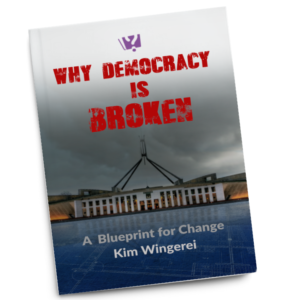
The TV rights bonanza has stalled, the frenzy to secure hosting rights is a thing of the past, and the Olympic’s political relevance has been reduced to who can be the most outraged over the artistic merits of the opening ceremony. Kim Wingerei and 360Info ask, what’s next?
Some Russian athletes are competing in Paris, but not under their own flag. Along with Belarus, Russia was banned from participating because of its invasion of Ukraine. Israel, on the other hand, was the first boat on the Seine at the opening ceremony in Paris last Friday, despite its invasion and mass murder campaign in Gaza.
The International Court of Justice – a UN body – declared that Israel had committed numerous violations of international law during its 57 years of occupation, ordering Israel to stop. It echoes the March 2022 ruling of the ICJ for Russia to cease its attacks on Ukraine.
To add insult to injury, at least 30 Israeli Olympians have publicly supported the Gaza war. Some have even served as IDF spokespeople, according to Karim Zidam – a New York Times and The Guardian commentator on the politics of sport.
ICJ ‘apartheid’ findings over illegal Israel settlements put Australia’s foreign policy at the brink
Olympic politics
The modern Olympics have always been a platform for political statements. In 1936, it was Adolf Hitler presenting the splendour of his Germany to a world mostly unaware of the horrors to follow. In 1968, it was the Black Power salute that took centre stage; four years later, the Munich Massacre diverted all attention away from the athletes.
In 1980, 67 countries boycotted the Moscow Olympics because of the Soviet Union’s invasion of Afghanistan. The Soviet block and some of its African vassal states retaliated and boycotted the Los Angeles Olympics.
Since then, actual boycotts and exclusions have been rare, too much money at stake, perhaps. But that, too, may be changing. As the games ventured into the new millennium, support for the games has waned.
Olympic TV right$
The enormous TV contracts that buttress the billion-dollar industry of the International Olympic Committee now seem incongruous with the reality of a broadcast market in terminal decline, while the sheer scale of the cost and logistics involved in putting on these events continue to soar.
As Alexander Faure from L’École des Hautes études en Sciences Sociales, Paris writes:
The way cities host the Olympic Games is changing. Staging the event has become such a burden, fewer cities are interested in going to the trouble.
While Tim Harcourt from the University of Technology Sydney believes that “a country doesn’t host the Olympic Games to make a profit”. Instead it places nations in the world’s shop window.
The 2024 Olympic Games were handed to Paris in a brokered deal with the next games in Los Angeles in 2028, but these two cities were the only true contenders, just like the 2032 games in Brisbane, which had no competitor for the hosting rights.
Olympic relevance
It begs the question of what relevance the Olympic movement still holds as we lurch deeper into the 21st century. If the once peripheral exploits of political posturing, national brand management, and grand advertising plays from major sponsors to captured audiences have lost their lustre, is it anything more than just the world’s largest sports carnival?
Emma Sherry from RMIT University, Melbourne, sees the opportunity for the Olympic Games to reimagine what they stand for, saying that “by providing a platform for athletes to advocate for positive change, the Olympics can reinforce their role as a force for good, promoting not just physical excellence but also social progress”.
This can be seen through Australia’s skateboarding teenagers.
Indigo Willing from the University of Sydney writes about Arisa Trew and Chloe Covell who, at just 14, are both aiming to become the youngest Australian gold medallists in a sport once dominated by hyper masculine men. Skateboarding at its second Olympics offers the opportunity for change.
One aspect that has always assumed importance with the Olympics is security. As Marco Lombardi and Maria Alvanou from the Catholic University of Sacred Heart in Milan argue, these games could be at a higher risk from terrorism than any other.
The task is now to see if the Olympic spirit that enraptured generations to create this force for global citizens, coming together to celebrate sporting excellence and togetherness, can reimagine itself for a new age, with new heroes and iconic moments to bookmark the lives of those who witness it.
A version of this article originally published under Creative Commons by 360info™.
Say goodbye to free sport on TV, say hello to paid streaming


